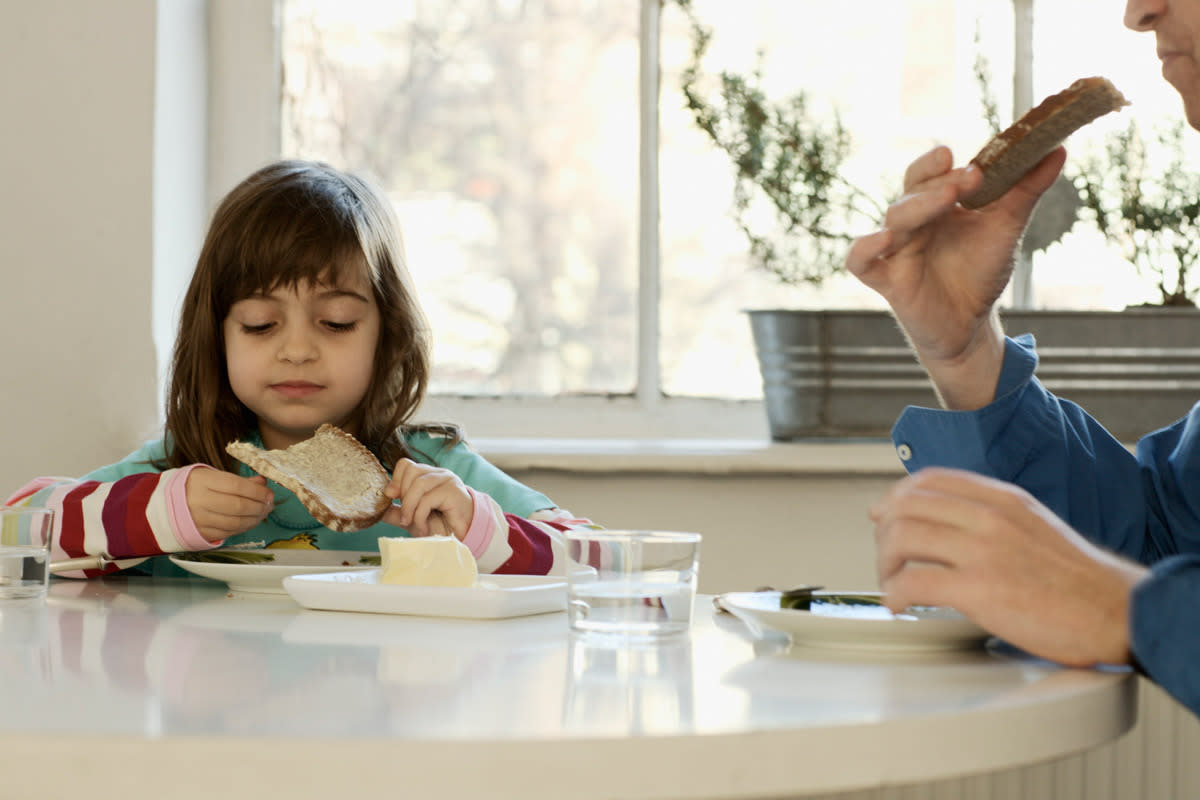Controlling Parents More Likely to Have Obese Kids

Add “parenting style” to the list of factors contributing to childhood obesity.
Looking past processed junk food, huge portion sizes, and lack of physical activity, researchers at Montreal’s Concordia University studied how parenting styles and social environment affect children’s risk of obesity. And what they found reveals that parents play a pretty important role.
STORY: Should You Make Your Child Clean His Plate? The Great Debate
According to the study press release Tuesday, preschoolers with “authoritarian parents” (described as “not responsive but demanding”) were 35 percent more likely to be obese than those with “authoritative” parents (described as “both responsive and demanding”). For school-age children, the likelihood went up to 41 percent. The study, “Parenting style and obesity risk in children,” was published in the journal Preventative Medicine.
STORY: The Dangers of Kids Skipping Meals
“It could be that a controlling parenting style essentially overrides a child’s own internal satiety and self-regulation signals, so that when the opportunity to overindulge is presented and the child is not being monitored, the child is less able to self-regulate,” Lisa Kakinami — an assistant professor in Concordia University’s Department of Mathematics and Statistics, who led the study of more than 37,000 kids using data from a national survey of Canadian youth in collaboration with the PERFORM Centre — tells Yahoo Parenting. “Another theory is that a controlling style may increase stress levels in the child, which has also been linked with obesity. It’s likely that the answer is not simple, and several different factors are likely interrelated.”
But with a staggering 17 percent of children ages 2 through 19 (that’s 12.7 million people) considered obese, according to the Centers for Disease Control and Prevention, untangling all the aspects of this health crisis is critical. What’s at stake, reports the World Health Organization, are health risks as serious as cardiovascular disease, insulin resistance (which the organization notes is an early sign of diabetes), cancer, and disabling degenerative joint disease.
“The family environment is important” to help turn the tide for the millions of kids facing an overweight future, says Kakinami. So to set children up for a healthy lifestyle, parents may want to reconsider any “clean-plate club” demands and take a look at how they interact with their kids when it comes to eating, choosing, and serving food. “A combination of warmth, while also enforcing rules with an open dialogue, has been shown to be best for a child’s social and emotional development,” Kakinami explains. “And this research indicates that it’s also good for a child’s health development as well.”
(Top photo: Ingolf Hatz/Corbis)
Please follow @YahooParenting on Facebook, Twitter, Instagram, and Pinterest. Have an interesting story to share about your family? Email us at YParenting (at) Yahoo.com.

